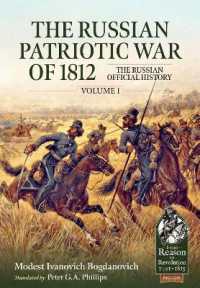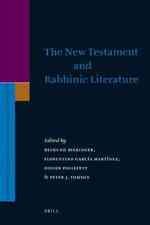Full Description
Indigenous Languages and the Promise of Archives captures the energy and optimism that many feel about the future of community-based scholarship, which involves the collaboration of archives, scholars, and Native American communities. The American Philosophical Society is exploring new applications of materials in its library to partner on collaborative projects that assist the cultural and linguistic revitalization movements within Native communities. A paradigm shift is driving researchers to reckon with questionable practices used by scholars and libraries in the past to pursue documents relating to Native Americans, practices that are often embedded in the content of the collections themselves.
The Center for Native American and Indigenous Research at the American Philosophical Society brought together this volume of historical and contemporary case studies highlighting the importance of archival materials for the revitalization of Indigenous languages. Essays written by archivists, historians, anthropologists, knowledge-keepers, and museum professionals, cover topics critical to language revitalization work; they tackle long-standing debates about ownership, access, and control of Indigenous materials stored in repositories; and they suggest strategies for how to decolonize collections in the service of community-based priorities. Together these essays reveal the power of collaboration for breathing new life into historical documents.
Contents
List of Illustrations
Preface by Brian Carpenter
Acknowledgments
Introduction: Collaborative Research and Language Revitalization: Toward a Relational Ontology across Time and Space
Regna Darnell
Part 1. Decolonizing Archives
Commentary by Robert J. Miller
1. Decolonial Futures of Sharing: "Protecting Our Voice," Intellectual Property, and Penobscot Nation Language Materials
Jane Anderson and James E. Francis Sr.
2. The Legacy of Hunter-Gatherers at the American Philosophical Society: Frank G. Speck, James M. Crawford, and Revitalizing the Yuchi Language
Richard A. Grounds
3. Supporting Researchers of Indigenous Vernacular Archives
Lisa Conathan
Part 2. Revitalization Tools
Commentary by Bethany Wiggin
4. Locally Contingent and Community-Dependent: Tools and Technologies for Indigenous Language Mobilization
Jennifer Carpenter, Annie Guerin, Michelle Kaczmarek, Gerry Lawson, Kim Lawson, Lisa P. Nathan, Mark Turin
5. Translating American Indian Sign Language from the 1800s to the Present Day
Jeffrey Davis
Part 3. Power and Language
Commentary by Diana E. Marsh
6. "The Indian Republic of Letters": Scholarly Networks and Indigenous Knowledge in Philology
Sean P. Harvey
7. Literacy, Cross-Cultural Interaction, and Colonialism: The Making of a Nineteenth-Century Nez Perce Mission Primer
Anne Keary
8. Across Space and Time: Letters from the Dakota People, 1838-1878
Gwen N. Westerman and Glenn M. Wasicuna
Part 4. Landscape and Language
Commentary by Michael Silverstein
9. CÚz̓lhkan Sqwe̓qwel̓ ('I Am Going to Tell a Story'): Revitalizing Stories to Strengthen Fish, Water, and the Upper St'Át'imc Salish Language
Sarah Carmen Moritz
10. No Time Like the Present: Living American Indian Languages, Landscapes, and Histories
Bernard C. Perley, Margaret Ann Noodin, and Cary Miller
Part 5. Creative Collaborations
Commentary by Regna Darnell
11. "Going Over" and Coming Back: Reclaiming the Cherokee Singing Book for Contemporary Language Revitalization
Sara Snyder Hopkins
12. Teaching Wailaki: Archives, Interpretation, and Collaboration
Kayla Begay, Justin Spence, and Cheryl Tuttle
Part 6. Transforming Collecting
Commentary by Jennifer R. O'Neal
13. Museums and the Revitalization of Endangered Languages and Knowledge
Gwyneira Isaac
14. Shriniinlii ('Fix It'): The Grease Mechanics of Translating Gwich'in
Craig Mishler and Kenneth Frank
Conclusion: The Power of Words, Relationships, and Archives
Mary S. Linn
Contributors
Index







